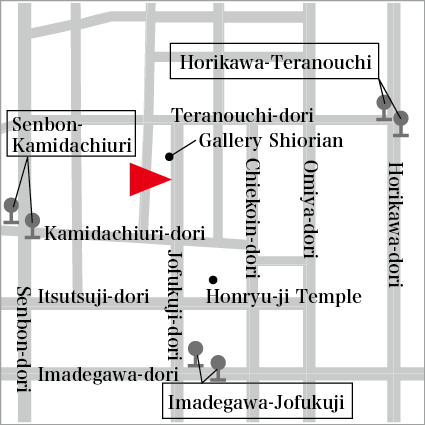Orinasukan Handmade Fabrics Museum
- Highlight
- Here you can imbibe the traditional Nishijin weaving life while enjoying the architecture and courtyard garden over a cup of tea
A townhouse in the heart of Nishijin telling the story of handmade fabrics
Originally a machiya townhouse built as a home and weaving workshop, this hand-weave museum – with its atrium, skylights, big beams, tatami reception room and courtyard garden to the rear – remains the same as when it was lived and worked in, giving visitors an excellent idea of the Nishijin weaving tradition.
What was once the kitchen area now serves as display space, exhibiting Noh costumes (symbolic of the hand weaving culture), traditionally woven fabrics from all over the country and the tools used to make them. Besides static exhibits, visitors can enter the workshop and watch craftsmen hand weaving. Furthermore, if a booking is made, visitors can participate in a hand weaving lesson on a small loom.
Meanwhile, adjacent to the museum, there is space to chill out in. A building constructed of recycled materials salvaged from a derelict school in Shimane prefecture according to a design of globally active architect Michael Anderson.
Known as Susameisha, this building is used for events and serves as a gallery.
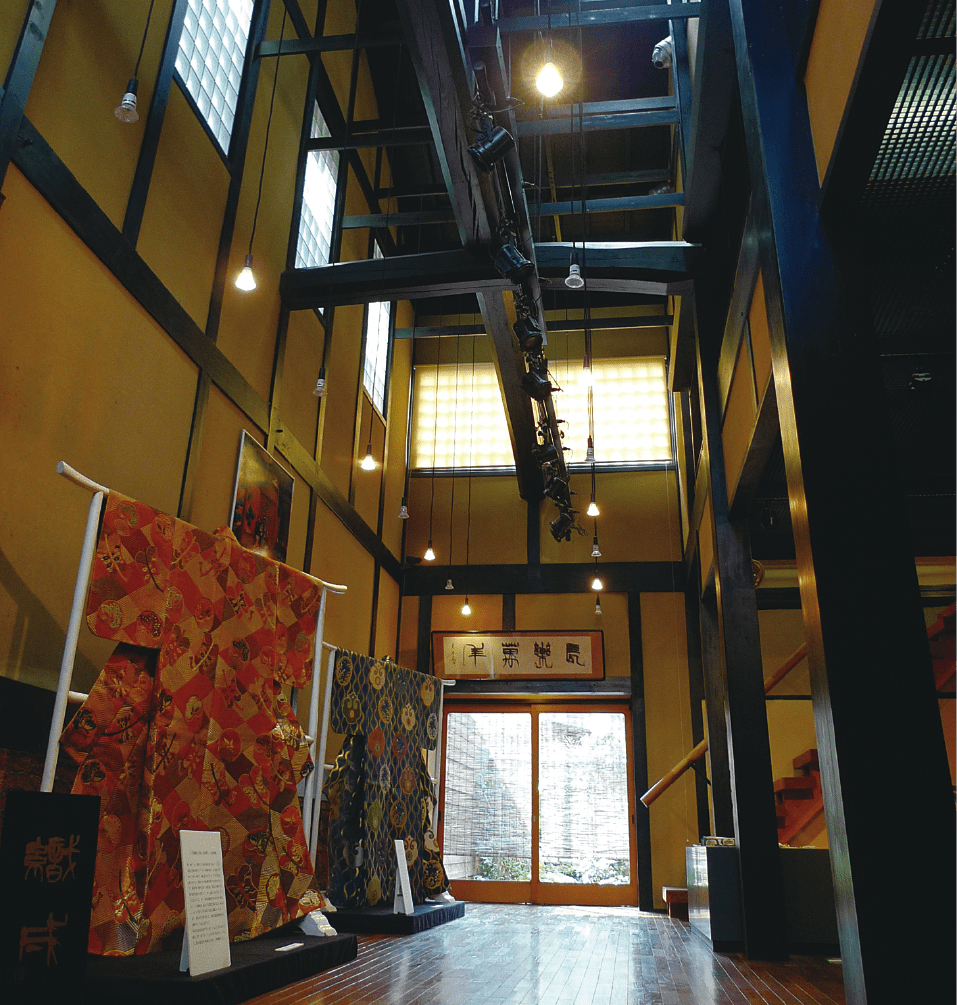
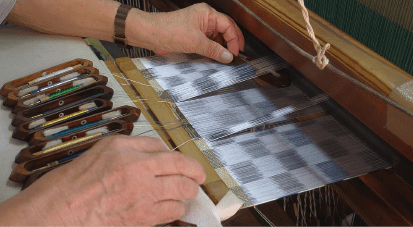
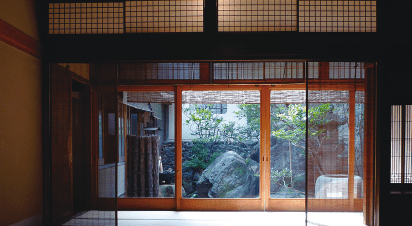
| Address | 693 Daikoku-cho Jofukuji-dori Kamidachiuri-agaru, Kamigyo-ku |
|---|---|
| TEL | 075-431-0020 |
| FAX | 075-415-2590 |
| URL | http://www.watabun.co.jp/orisu.html |
| Hours | 10:00 ~ 16:00(entry by 15:30) |
| Closed | Mon, New Year Hols |
| Adm | Adults ¥1,000, High school students and under ¥700 (separate charge for weaving lesson, which requires booking) |
| Access | A 3-min walk from Imadegawa-Jofukuji Stop of City Bus/A 6-min walk from Senbon-Kamidachiuri Stop of City Bus/A 9-min walk from Horikawa-Teranouchi Stop of City Bus |
Facilities near by
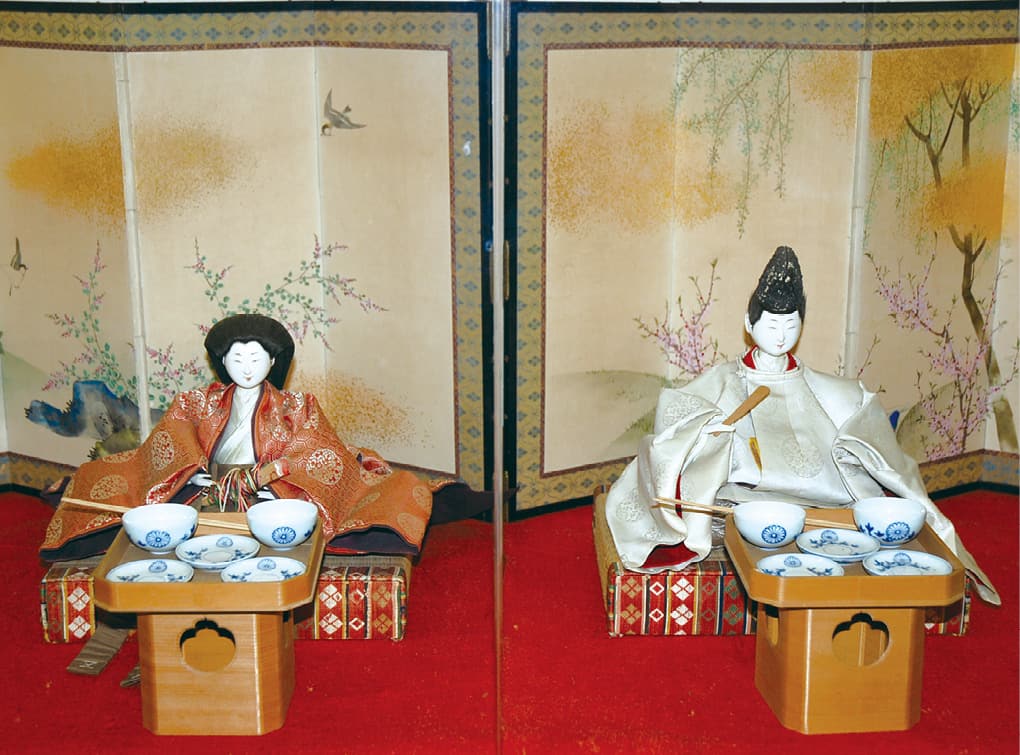
Hokyo-ji Temple Monzeki
Dainty dolls connected to the Imperial family
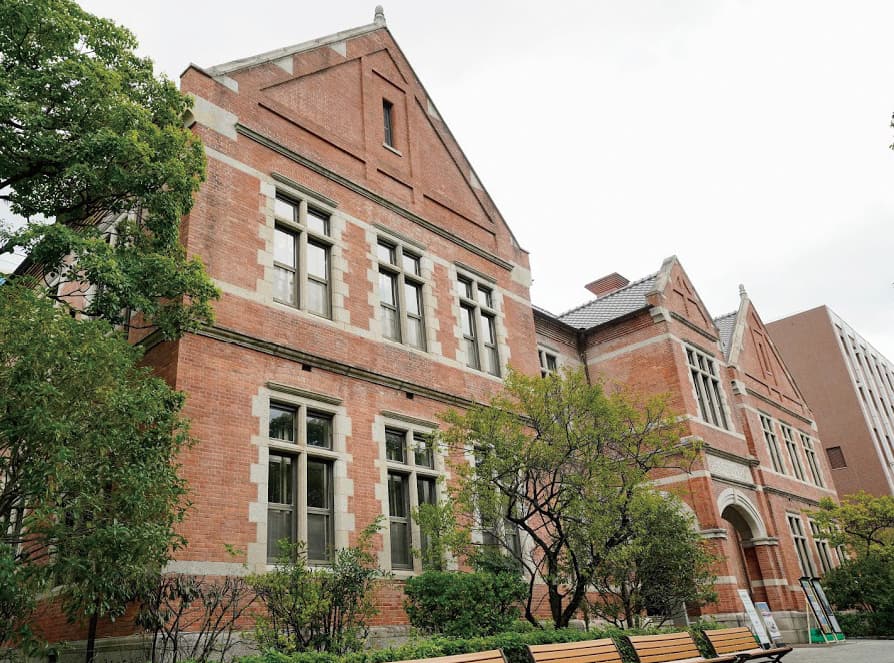
Harris Science Hall Doshisha Gallery
Learn about Doshisha
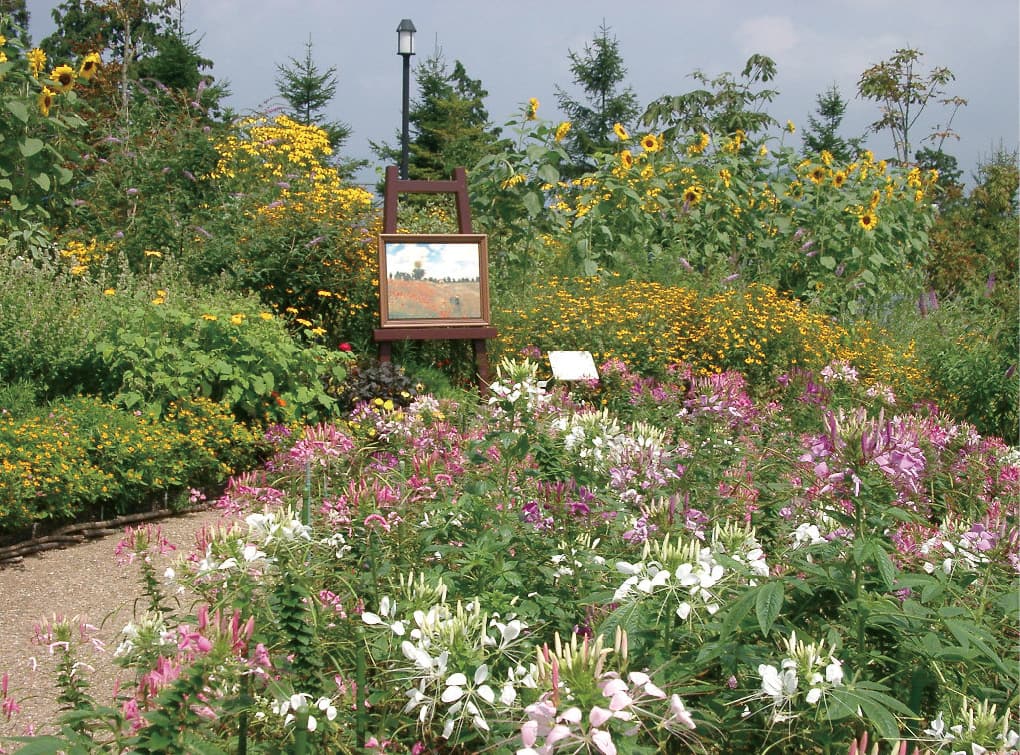
Garden Museum Hiei
A mountaintop garden influenced by the impressionists
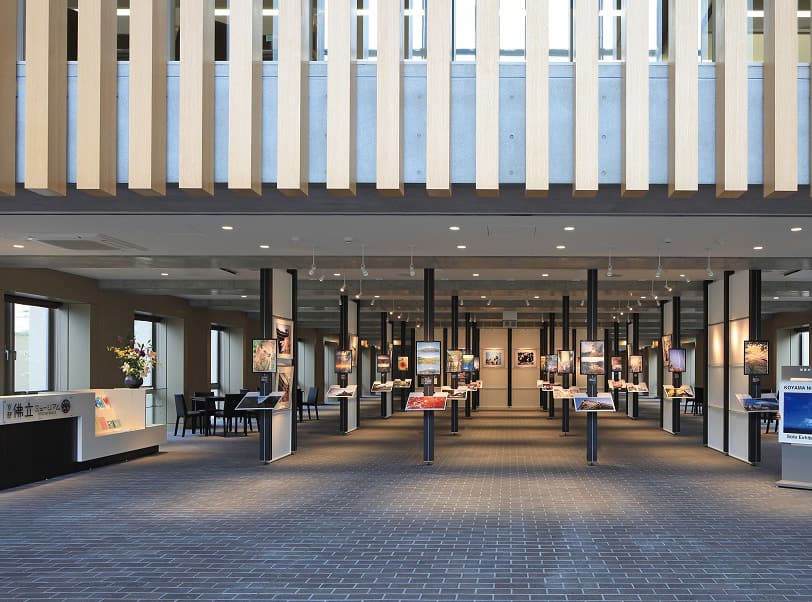
Kyoto HBS Museum
Meet Buddhism that thrives in the city of Kyoto, a 1,000-year-old capital
